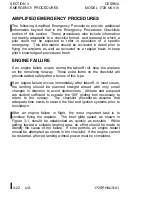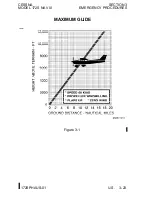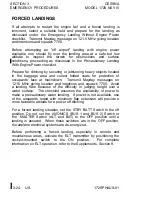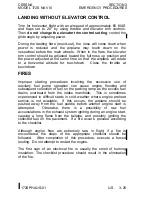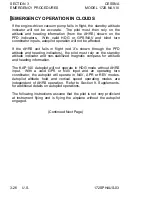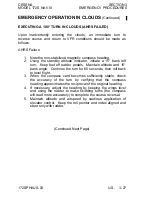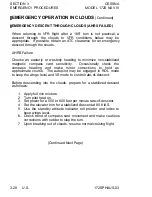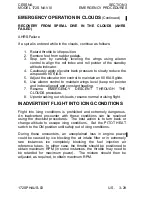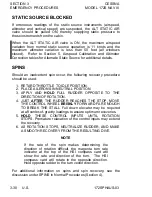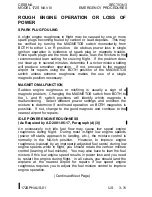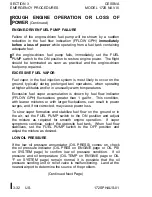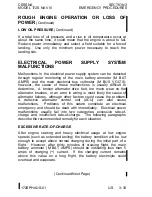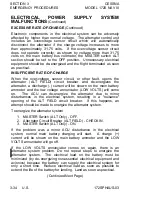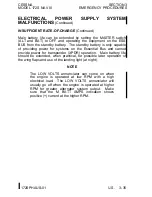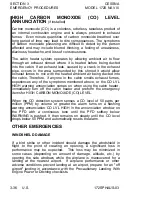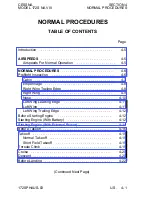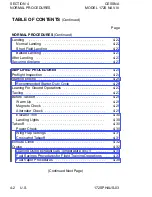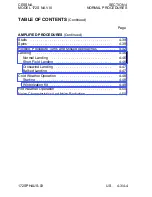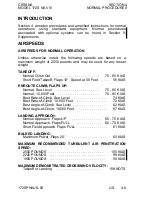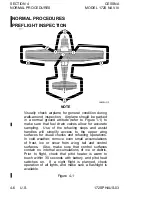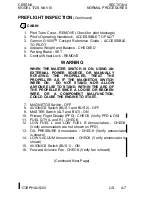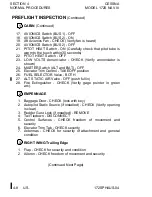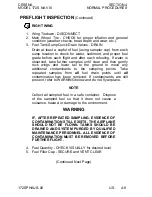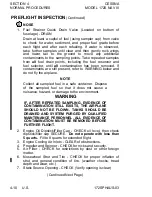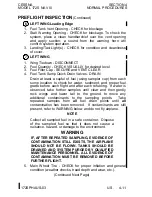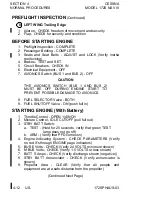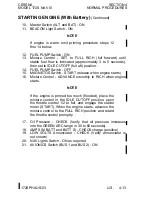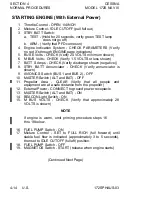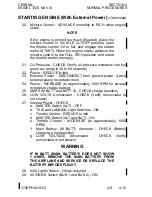
SECTION 3
CESSNA
EMERGENCY PROCEDURES
MODEL 172S NAV III
HIGH CARBON MONOXIDE (CO) LEVEL
ANNUNCIATION
(if installed)
Carbon monoxide (CO) is a colorless, odorless, tasteless product of
an internal combustion engine and is always present in exhaust
fumes. Even minute quantities of carbon monoxide breathed over
long period of time may lead to dire consequences. The symptoms
of carbon monoxide poisoning are difficult to detect by the person
affected and may include blurred thinking, a feeling of uneasiness,
dizziness, headache, and loss of consciousness.
The cabin heater system operates by allowing ambient air to flow
through an exhaust shroud where it is heated before being ducted
into the cabin. If an exhaust leak, caused by a crack in the exhaust
pipe, occurs in the area surrounded by this shroud it would allow
exhaust fumes to mix with the heated ambient air being ducted into
the cabin. Therefore, if anyone in the cabin smells exhaust fumes,
experiences any of the symptoms mentioned above, or the CO LVL
HIGH warning annunciation comes on when using the cabin heater,
immediately turn off the cabin heater and preform the emergency
items for HIGH CARBON MONOXIDE (CO) LEVEL.
When the CO detection system senses a CO level of 50 parts per
million (PPM) by volume or greater the alarm turns on a flashing
warning annunciation CO LVL HIGH in the annunciation window on
the PFD with a continuous tone until the PFD softkey below
WARNING is pushed. It then remains on steady until the CO level
drops below 50 PPM and automatically resets the alarm.
OTHER EMERGENCIES
WINDSHIELD DAMAGE
If a bird strike or other incident should damage the windshield in
flight to the point of creating an opening, a significant loss in
performance may be expected. This loss may be minimized in
some cases (depending on amount of damage, altitude, etc.) by
opening the side windows while the airplane is maneuvered for a
landing at the nearest airport. If airplane performance or other
adverse conditions prevent landing at an airport, prepare for an "off
airport" landing in accordance with the Precautionary Landing With
Engine Power or Ditching checklists.
3-36 U.S.
172SPHAUS-03

